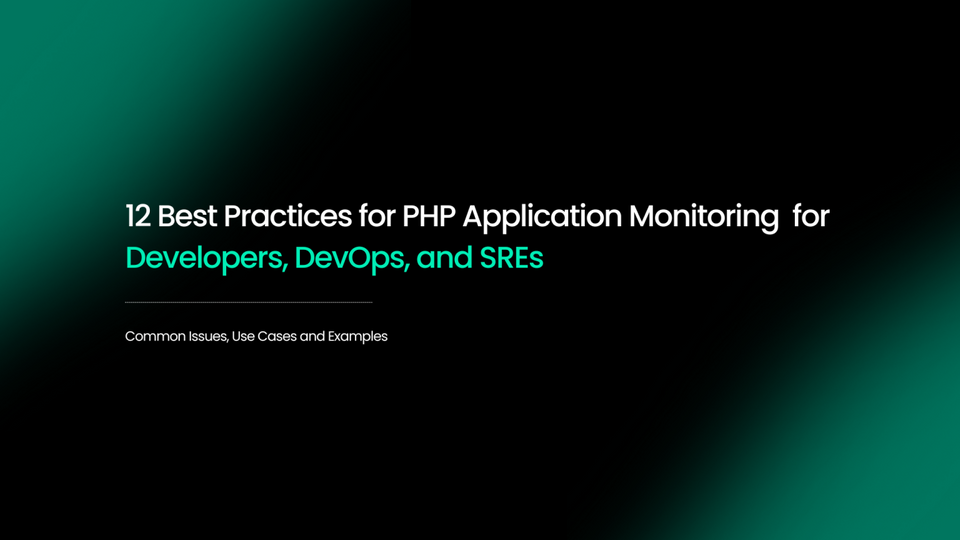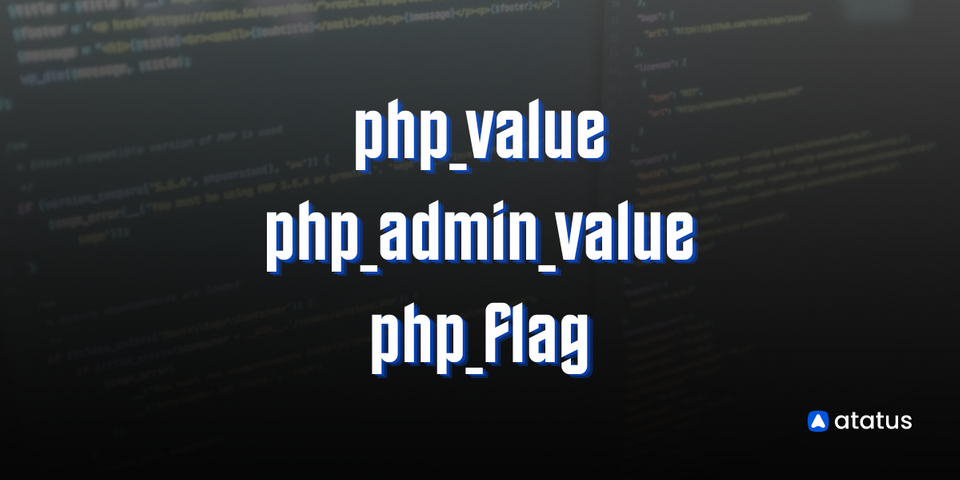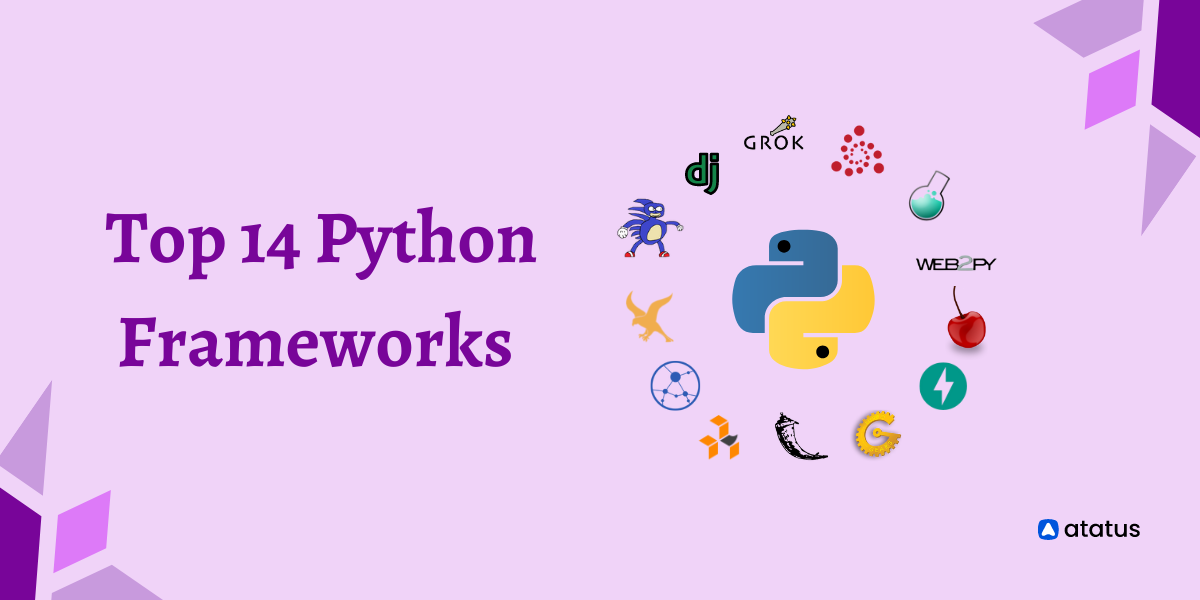10 Most Popular Frameworks in PHP
What is a PHP Framework?
PHP is one of the most used programming languages in website development and applications. It is the world's most popular scripting language for many different reasons - flexibility, ease-of-use, among others - but often coding in PHP, or any language for that matter, can get rather monotonous, repetitive and also used in making dynamic web pages.
A framework is a collection of modules and packages which we can use when we develop our applications. If you want to develop a new PHP application, a great place to start is by looking for a framework that includes all the functionality you'll need to use. Frameworks are used to speed up the development process. The performance speed of the websites and applications built using PHP frameworks are very high.
Why PHP frameworks?
- Writing complex queries is very difficult while retrieving data from the database. PHP provides CRUD (Create, Read, Update, Delete) operation which is more helpful in this and makes the development faster.
- An application can be developed rapidly since it has the MVC architecture support.
- The maintenance of the code is easier. The application code is incisive and easy to work with.
- The security features in the frameworks are better in PHP.
- The Don't Repeat Yourself (DRY) principle ensures that minimal code has maximum impact.
- Agile developments are possible with PHP.
Best PHP Frameworks Available In The Market
To provide an organised and reusable code in a PHP project, one should consider preferring the best PHP frameworks. There are lots of frameworks in PHP in which we are going to list the top frameworks.
Let's see in detail about the above frameworks.
1. Laravel
Taylor Otwell started developing Laravel as an alternative to codeigniter and it has become the most popular frameworks in PHP. Laravel's installation has been made easier with Homestead , a vagrant-box with the requirements all in one. CodeIgniter was the most popular framework use in PHP in 2011. Since it lacked certain features like user authentication and authorization, Laravel was developed.
Features:
- MVC architecture support.
- Authentication.
- Database Migration System.
- Unique unit-testing.
- Eloquent ORM (Object Relational Mapping).
- Flawless Security.
- Pre-installed libraries.
- Built-in tool for command-line called Artisan.
Advantages:
- It has an elegant syntax, and it is prevalent since it allows web applications to be constructed quickly.
- It has an amazing API to speed up your development process.
- It can be used when you have a complex back-end requirement.
- Laravel can be also integrated with other third-party libraries and platforms, such as Amazon Web Services (AWS), which enables you to build highly-scalable applications.
- It runs tasks asynchronously in the background to improve performance.
2. Symfony
The first version of Symfony was released by Fabien Potencier. It has been the most popular among other frameworks since it has the best documentation and great features. To promote the framework in the market they introduced an Askeet Tutorial. Since it follows all the PHP standards it is also known as an extensive PHP MVC framework.
Features:
- Model-View-Controller based system.
- Flexible URI routing.
- Microframework- To develop specific functionality you don't need to re-install the entire framework.
- Twig Template Engine.
- Symfony Profiler.
Advantages:
- Symfony can be used when you build large scale projects. It has a set of decoupled and reusable components using which you can build the best PHP applications.
- One of the flexible frameworks in the market.
- It has built-in testing functionality to ensure whether your application runs as you expected.
- It can be used due to the availability of reusable libraries and components using which you can complete a variety of tasks such as authentication, templating, object configuration and much more.
- With the help of Symfony profiler, you can monitor the behaviour of your application with all the actions and back-end activities.
The best PHP applications are built using this framework, such as Drupal8, phpBB, and eZ Publish.
3. CodeIgniter
CodeIgniter was originally developed by Rick Ellis, The CEO of EllisLab, Inc. CodeIgniter is a very simple framework and is well-known for its ease-of-use, performance and speed.
Features:
- Follows MVC pattern
- Generate SEO friendly URL's.
- Built-in libraries
- Security and XSS filtering.
- Zip encoding class.
- Supports localization.
Advantages:
- Using this framework you can build dynamic websites since it has plenty of prebuilt modules which helps to build strong and reusable components.
- It can be used to build light-weight applications which run on simple servers.
- It is not fully based on MVC framework. Here models and views are optional but control classes are the must.
- It runs faster with database tasks compared to other frameworks.
- The amazing thing is that it is simply 2MB in size, which even includes the documentation.
For PHP beginners, it is a perfect framework since it has the best documentation compared to others.
4. CakePHP
In the early 2000s, CakePHP was one of the most-used PHP MVC frameworks. The most popular open-source framework using which you can create, manage and publish contents through Cake PHP-based CMS.
Features:
- Robust performance because of its flexible data validation process.
- Object Relational Mapping
- CRUD scaffolding
- Smarter router prefixes
- Bake script
- Fast and flexible templating and caching
- Supports the best security features
Advantages:
- It is one of the easiest frameworks and is simple and elegant to use.
- This is most preferred for its best security features like input validation, cross-site request forgery (CSRF) protection, cross-site scripting (XSS) protection and so on.
- The newer versions of CakePHP framework have improved performance speed and developed new components in the latest releases.
- It supports lots of essential portals and premium support via Cake Development Corporation.
- It is easy to install since you only need a web server and a copy of the framework.
Most popular CMS built using this framework are BEdita, Coderity, Croogo, CupCake and QuickApps.
5. Yii
Yii(pronounced as Yee or Jii) wanna know the abbreviation of it, here it is-Yes, it is founded by Qiang Xue on January 2008. After one year of its developement the first version of it was released on Decemeber 3, 2008. To make the framework better they decided to rewrite the earlier version and built it with latest technologies.
It is known as a universal web programming framework since it is suitable to build all web applications. The latest version is the most popularly used one called Yii2 since it is object-oriented and is based on DRY(Don't Repeat Yourself) coding concept.
Features:
- MVC pattern
- Installation is made easier.
- Supports a layered caching system
- Highly extensible
- Data Access Objects (DAO) provides a generic API to access data stored in different DBMS.
- Supports AJAX-enabled widgets such as auto-complete input field, data grid, treeview etc
- It has built-in authentication and authorization support.
Advantages:
- It has the strongest feature known as lazy-loading, which makes it faster compared to others.
- It can be integrated with AJAX and jQuery features which can be used to build large-scale development applications.
- To ease out the process of object-oriented programming and rapid prototyping it has the powerful code generator function Gii.
- Yii is easy to upgrade. You can write your modules or extensions and extend the framework's functionality.
One can use this framework to build a highly secured application.
6. Zend Framework
Zend Framework is a collection of 60+ packages for professional PHP development. It can be installed via Composer. It is also known as Glue framework. Zend Framework 2 has evolved from Zend Framework 1 and became a successful PHP framework with over 15 million downloads. It is built on agile technology to deliver high-quality applications. It is mostly preferred to develop large IT and bank-related projects. It also has several loosely coupled components, so it is called a Component Library.
Features:
- Advanced MVC implementation.
- Data encryption.
- Session Management.
- Supports multiple databases such as PostgreSQL, MySQL, MariaDB, SQLite etc..
- Simple cloud API.
Advantages:
- It has a user-friendly drag and drop editor, cryptographic coding tools, a connected Database Wizard, and instant online debugging tools.
- It supports front-end technologies like HTML, CSS and Javascript. You can also reuse a lot of code using this framework since it is object-oriented.
- We have the option to delete the modules and components which we do not need in the application using this framework.
- The framework supports industry-standard encryption.
- This will be best if you have the experience and interest in the development and object-oriented coding.
- It has a flexible caching sub-system which supports many types of backends such as memory or a file system.
- To test the framework you can integrate PHPUnit with Zend.
The popular products which are developed using this framework are McAfee, website of IBM, Magent, a shopping cart website.
7. FuelPHP
The FuelPHP project started in October 2010. The major contributors to FuelPHP are Harro Verton, Jelmer Schreuder, Dan Horrigan, Philip Sturgeon and Frank de Jonge. Later in November 2013, Steve West joined the development team.
Under the GitHub repository named Fuel, the first version of Fuel framework has been developed. Later another GitHub repository named FuelPHP was created to develop the second version called FuelPHP 2.0. This is a new framework when compared to other which was first released in 2014.
This holds the power of command line through the utility called Oil which speeds up the development process, increases efficiency, debugging and so on.
Features:
- Lightweight ORM model.
- Portable and works on any server.
- Input filtering and prevents SQL injection.
- Secure authentication and authorization framework.
- Autoloading classes, Session management, and Exception handling.
Advantages:
- It is the full-stack framework which supports MVC pattern and the evolved version of Hierarchical Model-View-Controller (HMVC) at the architecture level.
- The controller and the view layers presented in between the Presentor layer(formerly known as View Model) holds the logic required for the generation of views.
- The security features in this framework include input and URI filtering along with output encoding.
- This framework lets you write code on your own simple and easier since there are very few restrictions.
It supports PHP version 5.4 and above. It has detailed documentation through which one can start developing quickly.
8. Phalcon
Phalcon was created by Andrés Gutiérrez and the collaborators looking for a new approach to traditional web application frameworks written in PHP. The framework's original draft was initially called Spark and later they named Phalcon, representing the words "PHP" and "falcon". The initial release was made available on November 14, 2012.
It is not only a framework it is a PHP5 extension written in C language. The main difference between the other frameworks and this is it is based on C and C++. A PHP framework based on the Model View Controller architecture.
Features:
- It is a loosely coupled framework.
- Follows Model View Controller architecture.
- Fastest framework in PHP.
- Provides ORM(Object Relational Mapping), template engine, routing
- It can create an independent framework.
Advantages:
- Developers do not need to know C to use Phalcon. Functionality is exposed as PHP classes and interfaces.
- The features include increased execution speed, asset management, a universal autoloader, and top security and caching.
- Supports both relational and non-relational databases.
9. Slim
Slim is a simple micro-framework used to build powerful web applications. It is a dispatcher that receives an HTTP request, invokes an appropriate callback routine, and returns an HTTP response. It is used to develop RESTful API and services.
Features:
- HTTP router.
- Supports middleware.
- Dependency injection.
- Flash Messages.
- Encrypted cookies.
- Template rendering.
- HTTP Caching.
Advantages:
- Easy to learn.
- It is the fastest RESTful microframework.
- Supports PSR-7.
- One who doesn't need a full-stack PHP framework to develop an application can use this.
10. PHPixie
PHPixie framework was initially released in 2012. This framework is suitable for customized web applications, social networking websites. The main goal of this framework is to create a high performance for read-only websites.
Features:
- Package system - You can bundle the code and share with your teammates or reuse it.
- Supports the non-relational database such as MongoDB.
- It uses cryptographic secure hashes, secure cookie handling.
- It has a linear code flow.
Advantages:
- Easy to learn.
- It is flexible.
- Concentrates on speed and page load time.
Conclusion
Frameworks boosts your app performances and reduces the development time thus make the wise choice while choosing frameworks for developing your applications. To avoid frustrations while using PHP framework understand the concepts behind the frameworks. Understand the requirement of your project and then choose the framework that suits your needs.
Optimize PHP Framework Performance with Atatus Monitoring
Utilizing PHP frameworks like Laravel, Symfony, and CodeIgniter accelerates development, but ensuring optimal performance and swift issue resolution remains crucial.
Atatus offers comprehensive PHP application monitoring, providing deep insights into execution times, memory usage, and request handling. By proactively detecting performance bottlenecks and correlating metrics with logs, Atatus helps maintain seamless user experiences and enhances the efficiency of your PHP applications.
Start a 14-day free trial with Atatus to elevate your PHP application performance.
#1 Solution for Logs, Traces & Metrics
APM
Kubernetes
Logs
Synthetics
RUM
Serverless
Security
More





